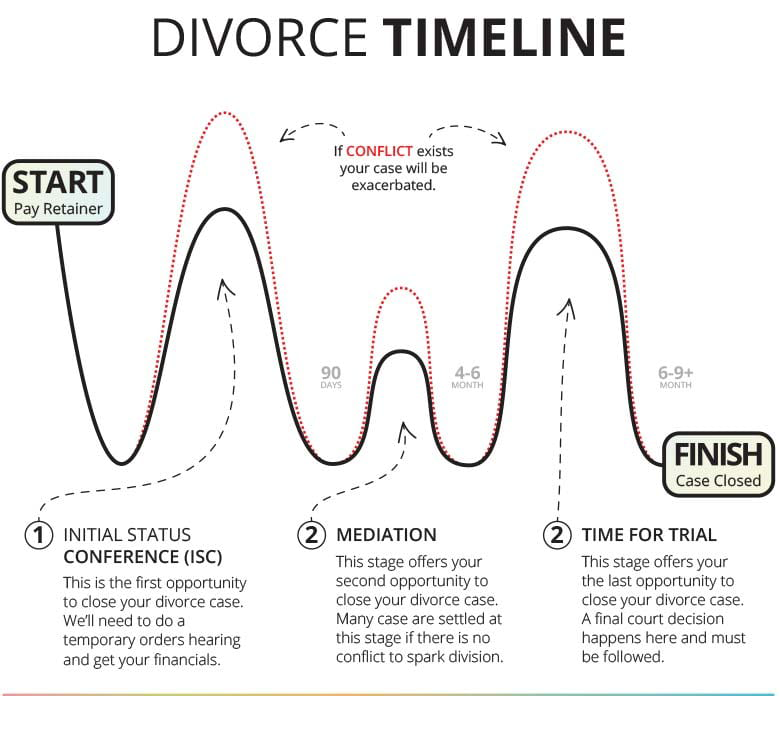Factors Influencing Divorce Duration
The timeline for completing a divorce is affected by various elements, each adding layers of complexity and potential delay to the proceedings.
Initial Challenges in Serving Divorce Papers
The formal process begins with serving divorce papers to your spouse, which can be complicated if your spouse evades the process server. States offer alternative serving methods, including mail, leaving documents with a resident at the spouse’s address, or publication. These alternatives, while useful, can extend the timeframe of the divorce process.
Complexity of the Divorce Case
Divorces that involve significant assets, such as businesses, real estate, vehicles, and complex financial instruments, or those with children, naturally take longer to resolve. The distinction between separate property (owned before marriage or received as a gift or inheritance) and marital assets (acquired during the marriage) often requires detailed examination. Furthermore, child custody disputes necessitate thorough negotiations and, if escalated to trial, significantly prolong the process.
Degree of Conflict Between Spouses
The inherent conflict in a dissolving marriage can vary greatly, influencing the duration of the divorce. High-conflict relationships, particularly those where communication is severely fractured, tend to lead to longer divorce proceedings.
Issues of Domestic Violence
In situations where domestic violence is present, additional legal measures, such as hearings for protection orders and detailed accounts of the abuse, may be necessary. Cases involving children are further complicated, potentially leading to separate investigations or proceedings related to abuse or neglect.
Concealment of Assets
A critical aspect of divorce is the full disclosure of assets by both parties. Attempts to conceal assets not only delay the process but can also result in legal penalties against the offending spouse.
Court Schedule and Legal Representation
The timing of court dates is subject to the court’s schedule, which may experience backlogs. Additionally, conflicts in the schedules of involved attorneys can introduce further delays.
Navigating the intricacies of a divorce requires patience and understanding of these key factors. Each case is unique, with its timeline influenced by a combination of these elements.






